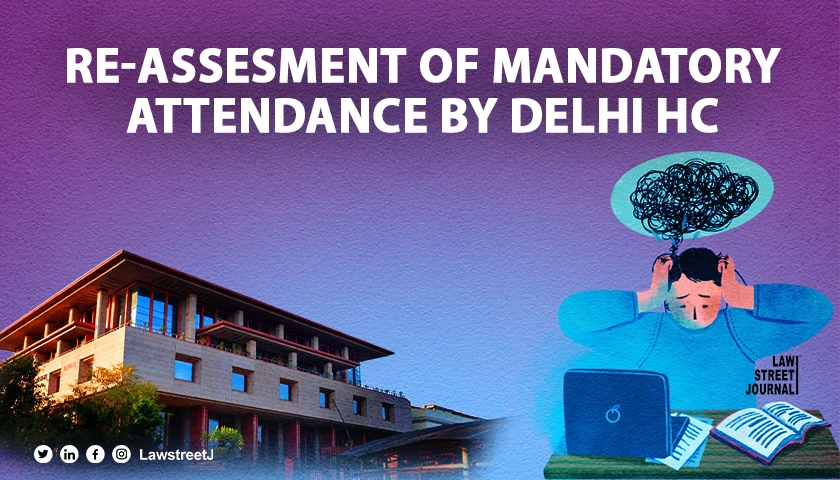New Delhi: The Delhi High Court has initiated a suo motu case to review mandatory attendance requirements in higher education, emphasizing the need to adapt to changing educational paradigms and student needs.
A Division Bench comprising Justices Prathiba M. Singh and Amit Sharma heard a writ petition originally filed in the Supreme Court following the suicide of a law student allegedly due to harassment over low attendance.
The court noted that traditional attendance norms may need reconsideration, stating, “Education is no longer restricted to classroom teaching or textbook education and, in fact, has been extended to more practical areas.”
Highlighting the need for a broader review, the court observed, “The issue of mandatory attendance is also a cause for concern among the younger generation, who perceive it in a completely different manner than was traditionally thought.”
The court further emphasized the importance of considering mental health impacts, stating, “The mental health of students, which is also affected by the mandatory attendance norms, needs to be borne in mind while reconsidering attendance requirements.”
Expressing the intention to form a committee to study these issues, the court held, “This Court intends to form a Committee to study all the above factors and to place a report before the Court so that certain uniform practices can be evolved for undergraduate and postgraduate courses in respect of attendance requirements.”
The court has issued notices to various educational institutions, regulatory bodies, and government representatives to assist in this matter. It has also requested the Additional Solicitor General to make submissions.
In conclusion, while initiating a comprehensive review of attendance norms in higher education, the Delhi High Court has emphasized the need to consider modern educational methods, student perspectives, mental health concerns, and global practices in formulating attendance policies.



![Delhi High Court Sets Aside Arbitral Tribunal's Award Against NHAI in Highway Project Delay Case [Read Judgment]](/secure/uploads/2023/07/lj_9605_23374c2e-392c-4491-a2fe-f2f12fc5272f.jpg)
![Delhi Court Rejects Stay Request in Defamation Case Against Rajasthan CM Ashok Gehlot [Read Order]](/secure/uploads/2023/08/lj_5208_80de1ddc-d76a-4f7f-b180-408e3ae14fb4.jpg)





